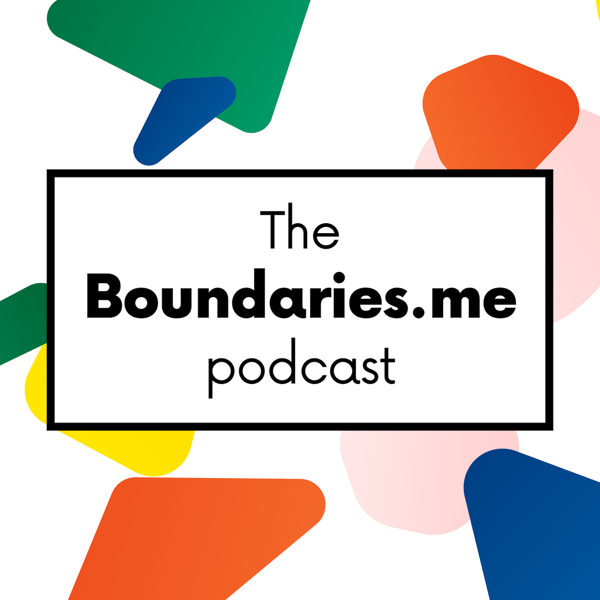Episode 413 - The Dr. Cloud Show - The Art of Constructive Criticism
The Boundaries.me Podcast
Greg Bowler
4.7 • 815 Ratings
🗓️ 13 June 2024
⏱️ 66 minutes
🧾️ Download transcript
Summary
On this episode of The Dr. Cloud Show:
Dr. Cloud explores criticism and its role in personal growth and relationships. He argues that when done with the right approach, criticism can be an act of love that facilitates positive change. Dr. Cloud provides tips on giving and receiving criticism effectively. He emphasizes specificity over global statements, using "I" statements, setting a positive tone, making it a conversation, and offering actionable feedback. He also examines motivations behind unhelpful criticism like envy, anger, or control. The talk covers watching tone, making criticism timely and relevant, and distinguishing criticism aimed at helping versus hurting. Overall, Dr. Cloud offers insights into navigating constructive criticism, open communication, and fostering personal and interpersonal growth through this approach.
Dr. Cloud tackles a viewer's question about coping with a partner whose language inadvertently echoes her emotionally abusive father's. He discusses the term "emotional abuse," arguing that its overuse can diminish its impact when accurately applied. Dr. Cloud advises approaching the partner constructively, focusing on how they can communicate in ways that foster connection and avoid triggering past traumas. He suggests discussing specific language that helps or hurts, enabling better understanding of each other's sensitivities. Additionally, he recommends taking timeouts when triggered to prevent confusing past and present experiences. This video offers strategies for those whose current relationships are affected by childhood trauma.
Christie is having trouble receiving love. She has a transactional mentality about it where she feels she needs to be worthy of it.
Stacy is helping recovering addicts. Many of them have a victim mindset and cross her boundaries. How can she enforce her boundaries without exacerbating their victim mentality?
Tiffany has a difficult relationship with her father. He is addicted to TV and is constantly talking about conspiracy theories.
Dr. Henry Cloud wants to help you take back control of your time and energy. You'll learn powerful strategies to prioritize what matters, set healthy boundaries, and achieve your goals with less stress and more joy. Master Your Time, Master Your Life is a 2 hour workshop that will transform how you use your time. Go to https://www.boundaries.me/time to get a special offer on the upcoming workshop!
If you want to call in or watch the show live, subscribe on YouTube and click the Bell icon. It will alert you whenever we go live and will be your cue to call in and ask Dr. Cloud for advice.
https://youtube.com/drhenrycloud
Transcript
Click on a timestamp to play from that location
| 0:00.0 | Hey guys. Welcome back. It's the Dr. Cloud Show. And it's good to be with you guys again. |
| 0:12.9 | As we do most days on the program, share a thought for the day or usually something that I'm dealing with a client or in research or something |
| 0:24.0 | I'm studying or maybe something in my own life and all of that. But today is one that kind of spans |
| 0:30.2 | the gamut of all those things. And it's something that is a real conundrum. And actually, the marriage researcher, John Gottman, shows it as one of the four predictable behaviors that, what I mean about predictable, or behaviors that predict, divorce. |
| 0:50.9 | Couples that have this behavior along with a few others, |
| 0:55.6 | their research shows it in 15 minutes. |
| 0:58.8 | I can listen to a couple and tell you within 90-something percent accuracy |
| 1:03.2 | whether that couple will be together in seven years. |
| 1:07.4 | Pretty amazing stats. |
| 1:08.6 | We've been replicated over and over. |
| 1:16.6 | So one of those behaviors is something that we actually need, but this gets into semantics a little bit. |
| 1:20.1 | And what we're talking about is criticism. |
| 1:25.6 | What do you think of when you think of the word criticize or critical or a |
| 1:34.4 | critic somebody writes about movies and books and shows and plays and stuff like |
| 1:39.7 | that we read the critics what do the critics say? Critics' choice. What does that mean? |
| 1:45.6 | It means I liked it. So what we're really doing, what we're talking about here, is looking at something and evaluating it and asking the question, was that helpful? |
| 2:02.8 | Does it do what was intended to do? |
| 2:04.9 | Is it good for somebody else? |
| 2:06.1 | Is it good for them? |
| 2:07.8 | Is it in some way in the service of something good? |
| 2:12.1 | And sometimes we come up with a yes and sometimes you come up with a no. |
| 2:16.0 | Here's the issue. |
... |
Please login to see the full transcript.
Disclaimer: The podcast and artwork embedded on this page are from Greg Bowler, and are the property of its owner and not affiliated with or endorsed by Tapesearch.
Generated transcripts are the property of Greg Bowler and are distributed freely under the Fair Use doctrine. Transcripts generated by Tapesearch are not guaranteed to be accurate.
Copyright © Tapesearch 2025.

